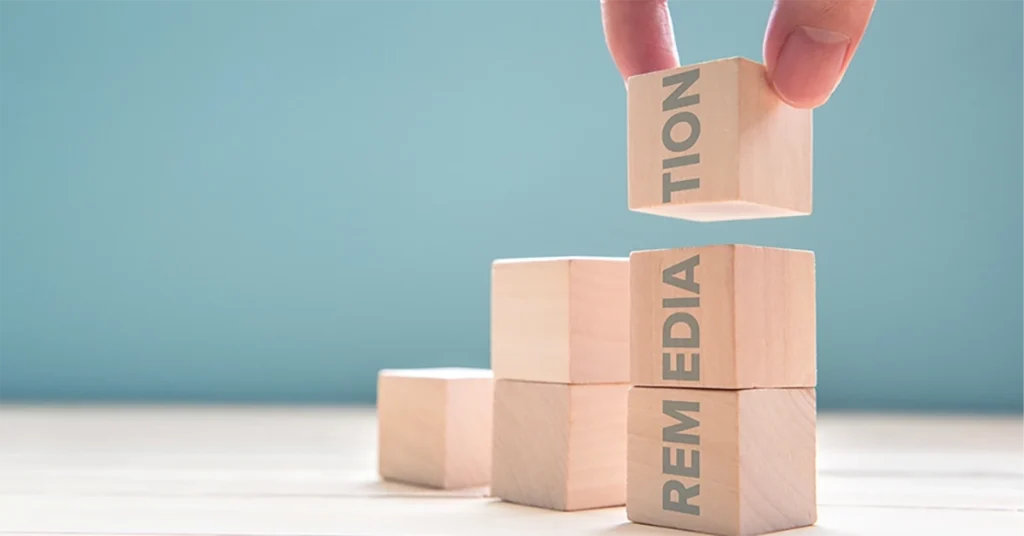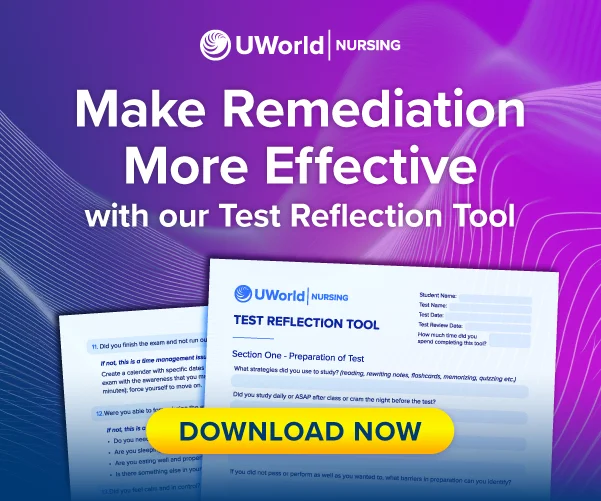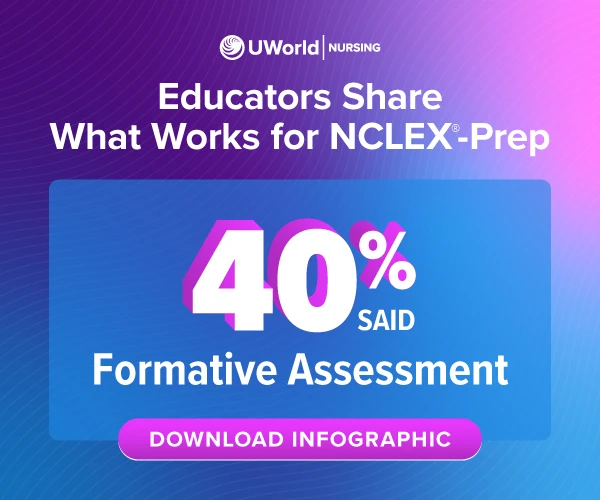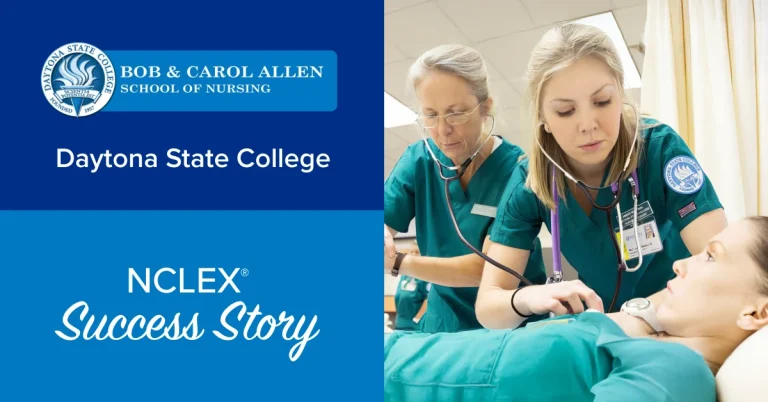As a nursing educator, you’ve likely witnessed the growing need for intentional, structured support as students face the complexities of the Next Generation NCLEX® (NGN®). With its emphasis on clinical judgment and scenario-based item types, the NGN has reshaped how we prepare students for practice—and it has made remediation more essential than ever.
While traditional question types remain a key part of the exam, every NGN candidate now encounters three case studies within the first 85 questions. Each case study includes six sequential items aligned with the Clinical Judgment Measurement Model (CJMM) that challenge students to apply, analyze, and evaluate nursing decisions in context.
To meet this challenge, educators must go beyond content review and focus on developing critical thinking and clinical judgment. The key to success lies in effective remediation strategies that proactively support all learners, not just those who are struggling.
Here are three principles to guide impactful remediation:
- Make remediation a routine part of the learning journey for every student.
- Use strategies rooted in evidence and tailored to individual needs.
- Strengthen clinical judgment to improve NCLEX readiness and reduce the risk of declining pass rates.
Who Benefits from Remediation?
Everyone.
Every student, regardless of performance level, benefits from remediation. When we frame remediation as something only “weaker” students need, we miss an opportunity to reinforce a growth mindset. Remediation is just as vital as required readings, labs, or simulations—it’s an active part of learning that helps students fill gaps and strengthen decision-making skills.
Traditionally, remediation has been recommended for underperforming students (Custer, 2018), but a more inclusive approach is warranted. A needs analysis following each evaluative activity—whether a test, simulation, or clinical task—can help identify both actual and potential learning gaps. This process can be supported using tools like a Test Reflection Tool, which encourages students to reflect on their performance and identify areas for growth.
What Are the Benefits of Remediation?
Remediation ensures learning doesn’t stop when a test ends. Nursing education builds on foundational knowledge. Concepts from early courses lay the groundwork for clinical reasoning and judgment later in the program. Through remediation, students revisit earlier material, correct misconceptions, and build a stronger base for future learning.
In addition to addressing knowledge gaps, remediation supports the development of study skills, test-taking strategies, and self-awareness. Reflection is a powerful learning tool—it helps students think critically about their understanding, decisions, and the outcomes of those decisions (Darby, 2019). This kind of reflection is essential to building the clinical judgment needed for real-world nursing and NGN success.
When Should Nurse Educators Begin Remediation?
Remediation should not be saved for the end of a course or program. To be effective, it must be embedded throughout the nursing curriculum—from the first course to the final clinical. Students should have the opportunity to reflect and remediate after every quiz, lab, simulation, and clinical encounter. The more frequent and intentional the intervention, the greater the opportunity for meaningful learning and growth.
How Do Nurse Educators Remediate?
While the literature affirms the value of remediation, research on best practices is still developing. One integrative review (Olsen et al., 2022) categorized remediation into three formats:
- Self-guided remediation
- Faculty-guided group remediation
- Faculty-guided individual remediation
Self-Guided Remediation
While some students may benefit from working independently, most need structure and accountability. Optional activities are often overlooked, especially by overwhelmed students. Providing tools like reflection questionnaires can help guide students to identify content gaps, cognitive errors, and anxiety triggers.
Give students choices. For example, after an exam, students could submit a written reflection, flashcards, a new set of related NCLEX-style questions, or even evidence of content review. The key is giving students agency while still requiring meaningful engagement with the material.
Faculty-Guided Individual Remediation
Individualized remediation plans are the most effective but require time and intentionality. Meetings between students and faculty offer valuable opportunities to:
- Pinpoint specific knowledge gaps
- Recommend tailored learning activities
- Build student-faculty rapport
- Increase accountability and motivation
Targeted support ensures students focus their time and energy on the areas that will impact them most.
Faculty-Guided Group Remediation
Group remediation offers efficiency when multiple students show similar gaps. If a large portion of the class struggles with the same questions or simulation scenario, use class time to break down the issue, analyze rationales, and model clinical reasoning.
For example, if 80% of your class misses the same three questions, review those items together, discussing why each distractor is incorrect. In clinical settings, if a group underperforms during a simulation, debrief together using video review and structured discussion.
Remediation Through NCLEX Practice
UWorld’s assignable NCLEX-style practice questions are a powerful remediation tool. Using fresh or unused items allows students to demonstrate whether they’ve truly learned the content. Educators benefit from real-time performance data, and students gain confidence with NGN-style formats while reinforcing knowledge and application skills.
Final Thoughts
Remediation is more than a post-test fix—it’s a dynamic, student-centered process that fosters reflection, critical thinking, and lasting understanding. When implemented early and consistently, it improves student performance, enhances retention and graduation rates, and raises NCLEX pass rates.
For many nursing programs, remediation can be the “remedy” for widespread challenges, including the fear and uncertainty surrounding the NGN.
By embedding remediation in every stage of learning, we give students the tools they need to succeed not just on the NCLEX, but in practice—and that’s the ultimate goal.











